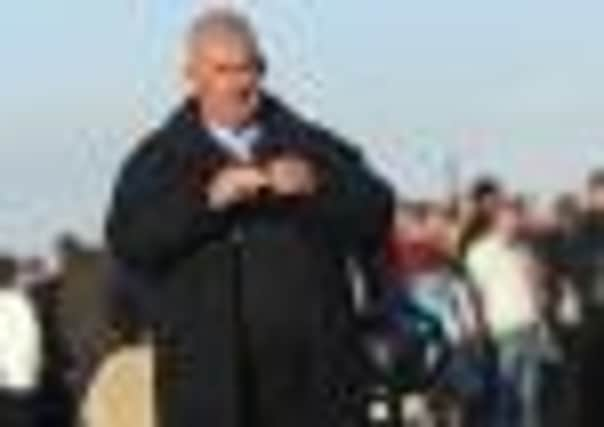Martin Dempster: Slow play action is long overdue


There’s simply no getting away from the fact. The Royal & Ancient game has become painful to watch at times, laborious pre-shot routines followed by countless waggles often leaving you wonder if certain players are ever going to hit a shot.
It became an issue right at the start of the current season. Sitting at home watching the PGA Tour’s Tournament of Champions in Hawaii, world No 1 Luke Donald sparked a tweeting frenzy as Jonathan Byrd, a notorious slow coach, crawled his way around the course. “I could rant all day long, don’t think anything will ever change as the slow players don’t realise they are slow,” tweeted Donald.
Advertisement
Hide AdAdvertisement
Hide AdAccording to his fellow players, Fisher isn’t one of those who would instantly spring to mind as being slow. The Englishman, however, could have no complaints over the one-shot penalty and £6,000 double-whammy he was hit with on Sunday. His group was warned by Paramor, the European Tour’s chief referee, as early as the sixth hole, yet just five holes later Fisher took 57 seconds – 17 more than he was permitted – over his second shot. When he then took 55 seconds over his first putt on the 14th green, Paramor, a hulk of a man, moved in.
Fisher, it was reported later, wasn’t happy. Of course he wasn’t. He knows that there are probably worse culprits than him on the Tour. He’s probably taken the same amount of time over shots in almost every round he’s played this season. So why did Paramor take action on this occasion – the first time a player in a final group has been punished for a considerable period of time?
In short, he’s probably reached the end of his tether, just like many others who love this game dearly but have watched rounds become longer for no other reason than players think it is acceptable to play it as a snail’s pace.
The majority of leading amateurs are no better than their professional counterparts. Few ever seem to have a sense of urgency on the golf course, strolling about as though tomorrow will be soon enough. Yet there are players who know slow play is a real problem and want action to be taken. Within minutes of Fisher being punished on Sunday, Lee Westwood and Marc Warren were both offering their views on the subject. “The only way to stop slow play is by handing out penalties,” tweeted Westwood, with Warren adding: “Now they’ve made an example of someone, all we ask is that the officials be consistent with the punishments cos it’s bn too long coming!!”
It certainly has and let’s hope this is just the start of a concerted effort across all the Tours to try and get the game being played again at a pace where it can actually be enjoyable to watch. Before Paramor got in on the act, the LPGA Tour had already started the ball rolling when Morgan Pressel was penalised one hole in the recent Sybase Match Play event because of slow play and subsequently losing her semi-final match. Byrd should have been punished long ago by the PGA Tour. So, too, should Kevin Na, whose antics in the Players’ Championship last month were beyond belief.
Paramor should be applauded for the action he took on Sunday. It should act as a shot across the bows of every European Tour player. It could also be the start of golf becoming watchable again.
R&A will regret lifting ban
Sitting in the Royal Lytham clubhouse a few weeks back, numerous eyebrows were raised among the British golfing press gathered there when it was revealed the R&A was lifting a six-year ban on mobile phones being allowed on the course at the Open Championship.
The cynical side of me instantly thought the decision had been based on commercial aspects – we live in a world, after all, where apps appear to be all the rage – rather than common sense. I’m totally convinced about that now and reckon Phil Mickelson would agree, too.
Advertisement
Hide AdAdvertisement
Hide AdWhile ‘Lefty’ came out with an excuse about being tired for his withdrawal after the first round of The Memorial, it’s believed spectators constantly using their mobile phones as cameras was the real reason. “It took Phil out of his game,” said Bubba Watson, one of his playing partners. “It’s sad that cell phones can make or break a championship.”
Those words should have set alarm bells ringing in the R&A offices in St Andrews. Peter Dawson and his team got it right when, following a whole host of problems with cellphones at Hoylake in 2006, they implemented that ban. The system that had been in place since then worked perfectly well and there was no need for it to be changed.